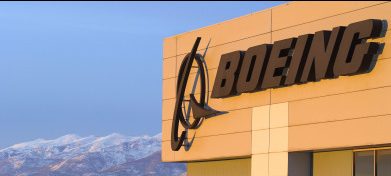The National Science Foundation (NSF) and Boeing [NYSE: BA] today announced a new $21 million partnership to accelerate training in critical skill areas and increase diversity in science, technology, engineering and math (STEM) fields.
«This investment demonstrates Boeing’s commitment to developing the future workforce and our current employees’ skills,» said Heidi Capozzi, senior vice president of Human Resources at Boeing. «The initiatives will help develop more technical workers and provide research opportunities for women and veterans seeking to join or return to the STEM workforce.»
Supported by $10 million in funding from Boeing, NSF will partner with world-class learning institutions to develop online training in critical skill areas for students and Boeing employees. These skill areas include model-based engineering and systems engineering, mechatronics, robotics, data science and sensor analytics, program management and artificial intelligence. The first project is expected to launch in 2019.
To complement Boeing’s investment, NSF’s Directorate for Education and Human Resources will invest $10 million in awards focused on reskilling and increasing the skill level of the U.S. STEM workforce.
Boeing will also give a $1 million gift to the NSF INCLUDES initiative, which aims to enhance U.S. innovation leadership. NSF will use this funding to increase the number of women in STEM fields and address the needs of women and veterans returning to the STEM workforce. With this investment, Boeing becomes the first business to contribute to NSF INCLUDES at a national level.
«We are grateful to Boeing for investing in the future of the U.S. STEM workforce,» said France Cordova, NSF director and leader of the NSF INCLUDES initiative. «These kinds of public-private partnerships can lead to a more technically-proficient workforce with the skills needed to expand our national research and development base.»
This latest investment delivers on Boeing’s 2017 pledge to invest $300 million in employees, infrastructure and local communities as a result of U.S. tax reform, with $100 million dedicated to workforce development.



